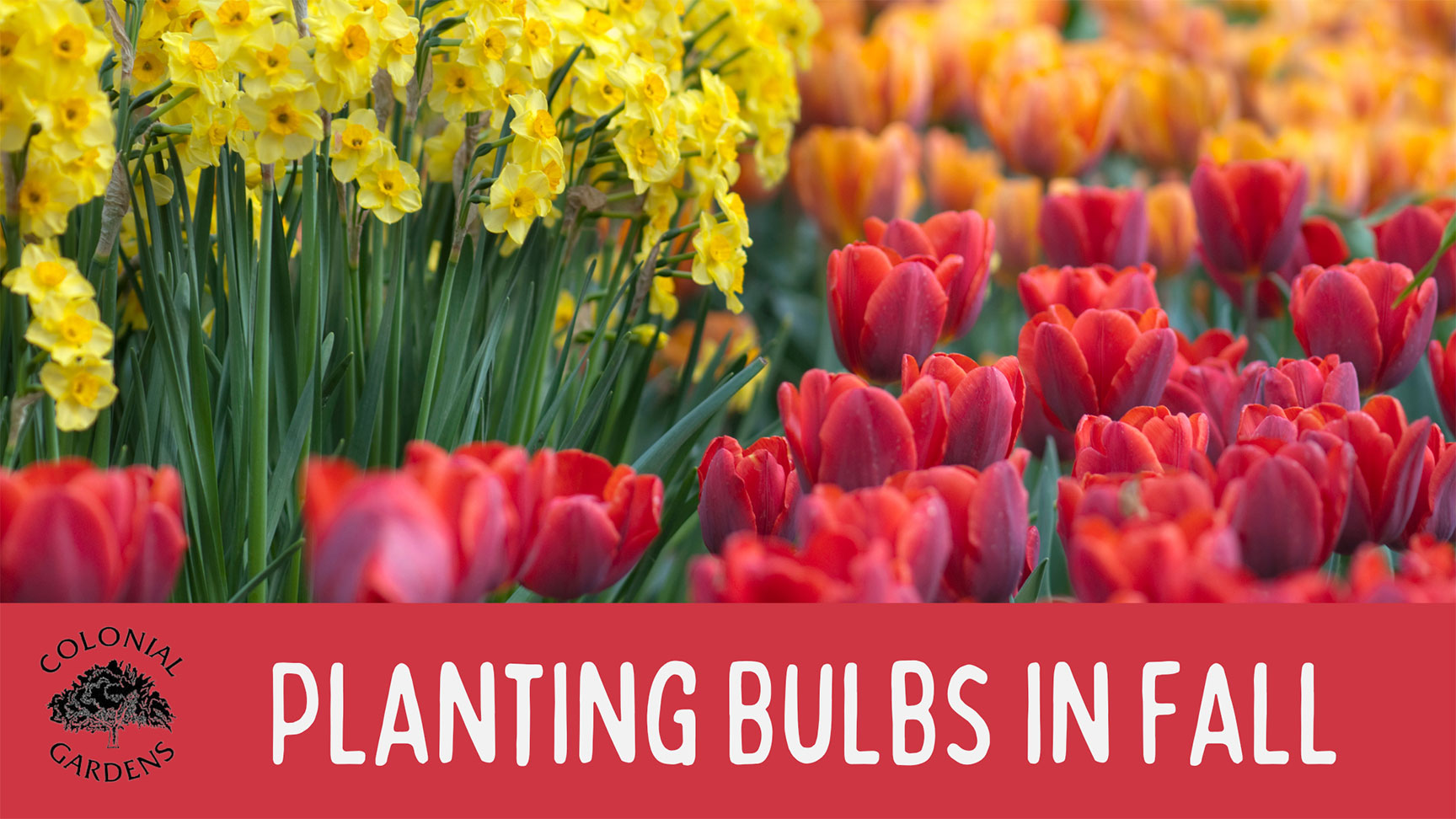
As a gardener, it’s sometimes hard to think about something a few seasons away. Still, there is so much reward in planning ahead, especially when it comes to spring. I’m sure we can all think back to a time looking out our windows at the brown sticks that remain in our garden, wishing it were spring. Planting bulbs now is a great way to get a head start on spring, bringing a rainbow of color to your garden.
Colonial Gardens carries a variety of spring bulbs like daffodils, crocus, tulips, and hyacinths for early spring color. Here is our guide for preparing for and planting spring bulbs:
Location:
Most spring bulbs prefer full sun locations, which means at least 6-8 hours of sunlight. Spring bulbs also need a location that is well-draining as soils tend to stay wet for longer in the fall and winter. Bulbs planted in wet locations risk rotting.
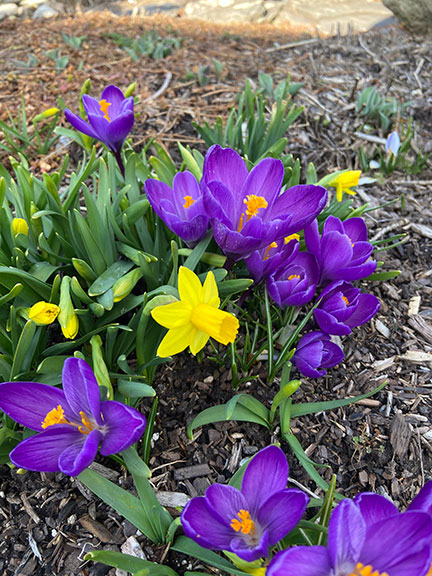
Some folks will plant bulbs near deciduous trees. These are trees that drop their leaves in the winter. By the time the bulbs bloom, the tree has not yet regained its leaves, giving the bulbs the sun they need to grow. You may see your bulbs bloom less year after year in these conditions as their leaves will not get enough sun to power next year’s flowers.
Bulbs can also be planted in containers with a well-draining potting mix. Consider bringing that pot under cover and propping it up off of the ground so that it’s less likely to crack.
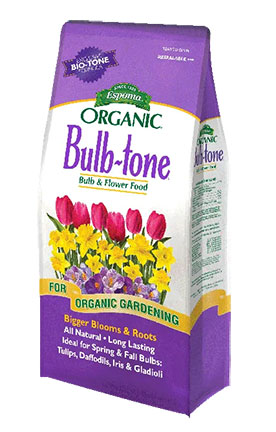
Needed Supplies:
Ideal bulb planting supplies include gloves, a trowel or bulb planter, a selection of spring bulbs, and a slow-release fertilizer like Bulb-Tone. If you have animals like squirrels that may dig up your bulbs, consider using wire mesh to pin over the planting spot. If planting multiple types of bulbs, keep the bulbs in labeled bags until you are ready to plant.
Planning:
Spring flowers look best when planted in clusters. When planning your space, consider the heights of the flowers you’re planting and their bloom period. Set out clusters of bulbs where you plan to plant them so that you have an idea of how to best distribute your bulbs.
Planting:
You can plant spring-blooming bulbs so long as the ground isn’t frozen! One positive of buying them early is that you have a greater selection. A positive of waiting to plant is avoiding heavy fall rains that can cause bulbs to rot out. Ideally, wait until the soil temperatures are under 55 degrees for fall bulbs.
To plant, dig a hole about two to three times that height of the bulb you are trying to plant. Because it is best to cluster bulbs for greater impact, you can dig one wide hole to plant your bulb clusters. If you are using a slow-release fertilizer like Bulb-tone, sprinkle the directed amount in the hole before placing the bulbs.
Place the bulbs with their pointed side up, spacing them about three to four times the width of the bulb apart. Re-fill the hole with the soil you removed, gently packing it down.
If you struggle with squirrels or other animals, you can place mesh over the bulbs, pinning it down with landscape pins. This mesh should be removed as the first shoots start emerging in spring. Some gardeners will use gravel, or will carefully cover their tracks by recovering the area with leaves.
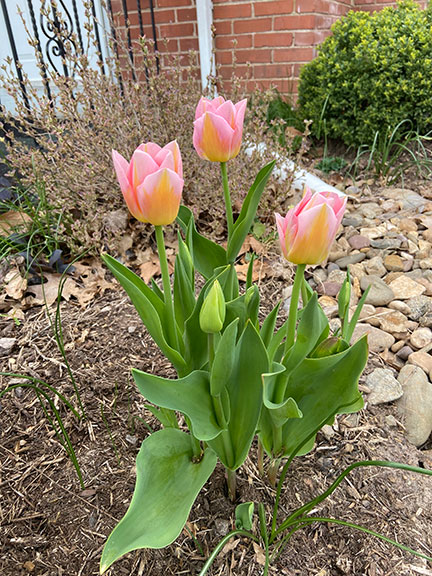
Water the area after planting. In the absence of rain, water once a week to help establish roots until the ground freezes.
Further care:
- You shouldn’t need to water your bulbs over the winter.
- After the bulbs stop blooming, cut back the flower stalks but keep the leaves. The leaves will collect energy for next year’s blooms until they naturally turn yellow. You can then cut back the leaves.
- Bulbs propagate naturally. In a few years, dig up your bulbs to divide them for their best performance.
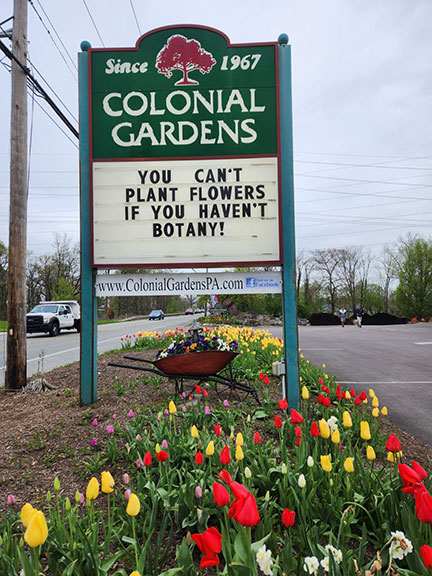
Colonial Gardens is an independent garden center located in Phoenixville in Chester County, Pennsylvania since 1967. We carry one of the widest selection of annuals, perennials, trees and shrubs, and food gardening crops in Southeastern Pennsylvania. We offer professional landscaping services and a full-service florist. Visit our greenhouse for unique houseplants and our gift shop for gifts and garden accessories. In the fall and winter, join us for our family-friendly seasonal events and Christmas shop.
